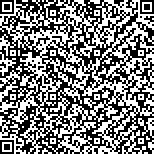| 引用本文: |
张良玉.索拉非尼治疗晚期原发性肝癌不良反应的观察及护理[J].湖南中医药大学学报,2017,37(9):1031-1035[点击复制] |
|
| |
|
|
| 本文已被:浏览 3484次 下载 1358次 |
| 索拉非尼治疗晚期原发性肝癌不良反应的观察及护理 |
| 张良玉 |
| (湖南省中医药研究院附属医院, 湖南 长沙 410006) |
| 摘要: |
| 目的 总结并观察原发性肝癌患者口服索拉非尼的不良反应及护理要点。方法 将45例符合入组要求的肝癌患者纳入研究病例。随机分为两组,两组均采取口服索拉非尼治疗,对照组22例采取常规对症护理措施,观察组23例在对照组基础上结合中药口服和辨证施护。结果 观察组除1例晚期肝癌合并腹水患者在服用索拉非尼治疗1.5月后,因全身多脏器功能衰竭而死亡。其他所有病例在治疗期间发生的不良反应主要有:皮肤毒性反应(手足综合征、皮疹、脱皮),消化道反应(厌食、恶心呕吐、腹泻),高血压,白细胞低下,发热。观察组皮肤毒性反应、消化道反应、白细胞低下发生率与严重程度明显降低,观察组发热发生率低,两组比较,差异有统计学意义(P<0.05);且观察组在皮肤毒性反应、消化道反应、白细胞低下、发热不良反应平均持续天数较对照组明显缩短,两组比较,差异有统计学意义(P<0.01)。结论 索拉非尼作为治疗晚期肝癌的一种小分子靶向药物,服药期间应密切关注相关不良反应,及时采取中医治疗及辨证施护,能明显减轻不良反应,提高患者治疗依从性及生活质量。 |
| 关键词: 原发性肝癌 索拉非尼 皮肤毒性反应 消化道反应 高血压 白细胞低下,发热 护理 |
| DOI:10.3969/j.issn.1674-070X.2017.09.026 |
| 投稿时间:2017-04-08 |
| 基金项目:湖南省中医药管理局项目(201228)。 |
|
| Observation of Adverse Reactions of Sorafenib and Nursing Care in the Treatment of Advanced Liver Cancer |
| ZHANG Liangyu |
| (Affiliated Hospital of Hunan Academy of Chinese Medicine, Changsha, Hunan 410006, China) |
| Abstract: |
| Objective To observe the adverse reactions sorafenib and summarize nursing points in patients with hepatic carcinoma. Methods 45 patients with liver cancer were enrolled in the study which were randomly divided into two groups. The patients in the two groups were orally administrated with sorafenib, and the control group (n=22) was given symptoma-tic nursing measures. The observation group (n=23) was treated with the dialectical nursing on the basis of the control group. Results In the observation group, one patient with advanced liver cancer complicated with ascites was administrated with Sorafenib, while the patient died with cardiopulmonary failure after 1.5 months. The adverse reactions in all cases occurred during the treatmentwere: skin toxicity (hand foot syndrome, rash, decrustation), gastrointestinal reactions (anorexia, nausea and vomiting, diarrhea), fatigue, hypertension, leukopenia, fever. The skin toxicity, gastrointestinal reactions, leukopenia, fever incidence and severity in the observation group significantly reduced, the difference between the two groups was statistically significant (P<0.05). The mean duration of adverse reactions in the observation group was significantly lower than that in the control group, the difference between the two groups was statistically significant (P<0.01). Conclusion Taking TCM nursing measures timely could significantly reduce the adverse reactions, improve patient compliance and quality of life in treatment of advanced liver cancer with the small molecular target drug, Sorafenib. |
| Key words: primary liver cancer Sorafenib skin toxic reaction gastrointestinal reaction hypertension leukocytopia pyrexia nursing care |
|

二维码(扫一下试试看!) |
|
|
|
|




